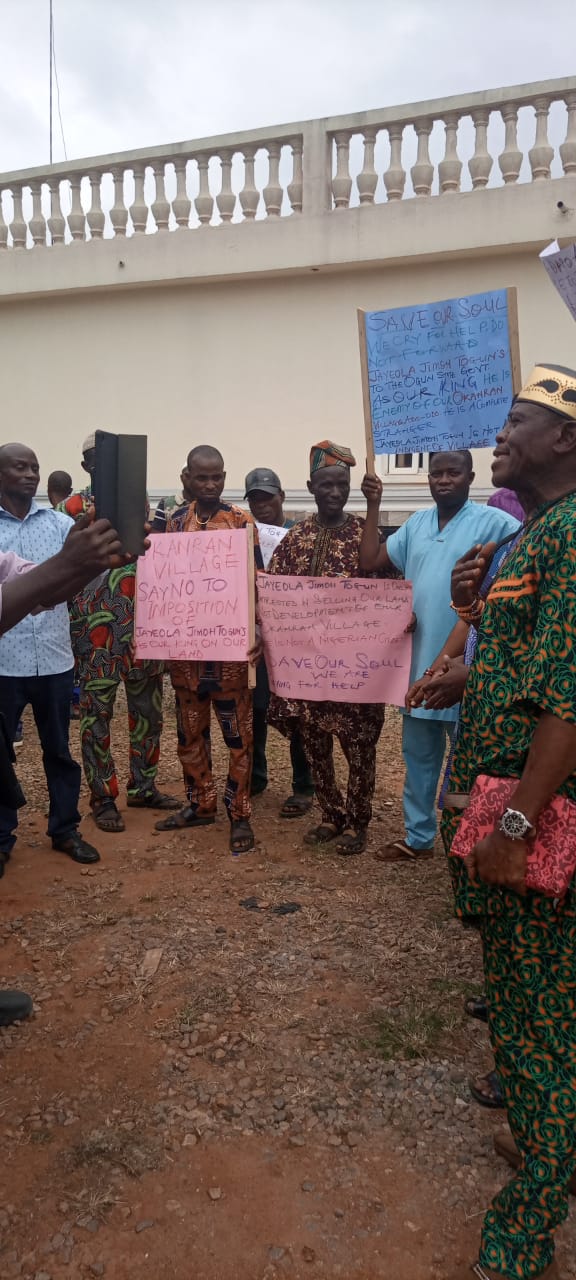In a dramatic turn of events that has sent shockwaves through the political landscape of Zamfara State and beyond, former Senator Kabiru Marafa, who represented Zamfara Central in the Nigerian Senate, has announced his resignation from the All Progressives Congress (APC). The announcement, made during a gathering of his supporters, marks a significant moment in the ongoing saga of internal strife within the ruling party. Marafa, a prominent and vocal figure within the APC, accused the party of betraying its members and fostering deep-seated divisions that have crippled its unity and effectiveness, both in Zamfara State and across Nigeria. His departure underscores the growing discontent among party members and raises critical questions about the APC’s ability to maintain cohesion as it navigates complex political challenges ahead of future elections.
A Decision Born of Frustration
Marafa’s resignation was not a spur-of-the-moment decision but the culmination of days of intensive consultations with his supporters and political allies. Speaking with a tone of resolve and disappointment, the former senator addressed a crowd of loyalists, explaining that his exit from the APC was a necessary response to what he described as systemic betrayal and neglect by the party leadership. “I want to use this medium to inform my supporters in Zamfara State, the North, and Nigeria as a whole that after a series of meetings with my people for about two days regarding the issue of politics starting from two years back of the APC government, we feel it is necessary to inform the public that APC as a party has betrayed and cheated us in Zamfara State and Nigeria,” Marafa declared.
The former lawmaker’s statement was laden with frustration, reflecting the sentiments of many APC members who feel sidelined by the party’s leadership. Marafa’s grievances are rooted in what he perceives as the APC’s failure to uphold its promises to its members, both at the state and national levels. He argued that the party has not only failed to deliver on its mandate to its supporters but has also allowed internal divisions to fester, undermining its ability to function as a unified political entity.
The Zamfara APC Crisis: A House Divided
At the heart of Marafa’s decision to leave the APC is the ongoing crisis within the party’s Zamfara State chapter. The former senator pointed to the leadership of Yobe State Governor Mai Mala Buni, who assumed the role of caretaker chairman of the APC, as a pivotal factor in the deepening divisions within the party. According to Marafa, the Zamfara APC has been split into two irreconcilable factions: one loyal to Buni and the other aligned with former Zamfara State Governor Bello Matawalle. This schism, Marafa argued, has persisted for over two and a half years without any meaningful efforts at reconciliation.
“In the state, the betrayal is at its highest peak because since Bala Buni took over the affairs of the party from former governor Matawalle, they have not held a single meeting up till this moment. The party has been divided into two parts: one part is for Bala Buni and the other is for Matawalle. This is two years and six months now, we ask them to resolve their differences, and nothing has been done,” Marafa lamented.
The lack of dialogue and reconciliation efforts has left the Zamfara APC in a state of disarray, with competing factions vying for control and influence. This internal power struggle has not only weakened the party’s standing in the state but has also alienated key figures like Marafa, who have long been instrumental in mobilizing support for the APC. The former senator’s exit is a stark reminder of the consequences of unresolved conflicts within a political party, particularly one that holds power at the national level.
Marafa’s Political Journey and Influence
Kabiru Marafa’s resignation carries significant weight due to his stature within the APC and his longstanding contributions to the party’s success in Zamfara State. A seasoned politician, Marafa served as the senator representing Zamfara Central, where he earned a reputation as a vocal and principled advocate for his constituents. His tenure in the Senate was marked by his outspokenness on issues affecting Zamfara, including the state’s chronic security challenges and economic hardships.
Marafa’s influence extends beyond the Senate, as he has built a formidable political base in Zamfara State through grassroots mobilization and strategic alliances. His decision to leave the APC is likely to have ripple effects, potentially swaying the loyalties of his supporters and further destabilizing the party’s structure in the state. For many of his followers, Marafa’s resignation is not just a personal decision but a reflection of broader discontent with the APC’s leadership and its handling of internal dynamics.
The Broader Context of APC’s Challenges
Marafa’s exit from the APC is not an isolated incident but part of a growing wave of dissatisfaction among party members in Zamfara and other parts of Nigeria. The APC, which rose to power in 2015 on a platform of change and reform, has faced increasing criticism for its inability to address internal conflicts and deliver on its promises to the Nigerian people. In Zamfara, the party’s challenges are compounded by the state’s volatile security situation, marked by banditry and communal clashes, which have eroded public confidence in the government.
The factionalism within the Zamfara APC is emblematic of broader issues within the party at the national level. Since its formation through a merger of several political parties in 2013, the APC has struggled to maintain unity among its diverse factions. The appointment of Mai Mala Buni as caretaker chairman was intended to stabilize the party and resolve internal disputes, but Marafa’s allegations suggest that these efforts have fallen short, at least in Zamfara.
Implications for Zamfara’s Political Landscape
Marafa’s resignation could have far-reaching implications for the political dynamics of Zamfara State. As a prominent figure with a loyal following, his departure from the APC may weaken the party’s electoral prospects in the state, particularly as Nigeria approaches the 2027 general elections. Zamfara has historically been a stronghold for the APC, but the ongoing internal divisions and the loss of key figures like Marafa could open the door for opposition parties, such as the Peoples Democratic Party (PDP), to gain ground.
Moreover, Marafa’s exit raises questions about his next political move. While he has not yet announced whether he intends to join another party or pursue an independent path, his influence and political capital make him a significant player in Zamfara’s political arena. Speculation is rife that Marafa may align with a rival party or form a new political movement to challenge the APC’s dominance in the state. Whatever his decision, it is clear that his departure will reshape the political landscape in Zamfara and potentially influence the broader northern Nigerian political scene.
The National Dimension: APC’s Struggle for Unity
Beyond Zamfara, Marafa’s resignation highlights the broader challenges facing the APC as it seeks to maintain its dominance in Nigerian politics. The party’s internal divisions are not limited to Zamfara but are evident in several states across the country, where competing factions and power struggles have undermined cohesion. The APC’s ability to address these issues will be critical to its success in future elections, particularly as public discontent with governance and economic challenges continues to grow.
Marafa’s accusation that the APC has “betrayed and cheated” its members resonates with a broader sentiment among some party loyalists who feel that the leadership has prioritized personal interests over the collective good. This perception of betrayal could fuel further defections, weakening the party’s structure and eroding its support base.
The Road Ahead for Marafa and the APC
For Kabiru Marafa, the decision to leave the APC marks the beginning of a new chapter in his political career. While he has not yet outlined his future plans, his statements suggest a deep disillusionment with the APC and a determination to chart a new course. Whether this involves joining another political party, forming a new movement, or taking a break from active politics remains to be seen. What is clear, however, is that Marafa’s influence and political acumen will continue to shape the discourse in Zamfara and beyond.
For the APC, Marafa’s resignation is a wake-up call to address the internal divisions that threaten its unity and electoral prospects. The party’s leadership, both at the state and national levels, will need to take decisive steps to reconcile factions, rebuild trust, and restore confidence among its members. This may involve convening inclusive meetings, addressing grievances, and ensuring that all voices within the party are heard.
Conclusion
The resignation of former Senator Kabiru Marafa from the APC is a significant development in Nigerian politics, with implications for both Zamfara State and the national political landscape. Marafa’s accusations of betrayal and division within the APC underscore the challenges facing the ruling party as it grapples with internal strife and public dissatisfaction. His departure highlights the need for the APC to address its internal dynamics and work toward greater unity if it hopes to maintain its dominance in Nigerian politics.
As Marafa embarks on the next phase of his political journey, his actions will be closely watched by supporters and opponents alike. His decision to leave the APC may inspire other disgruntled members to follow suit, potentially reshaping the political alignments in Zamfara and beyond. For now, the focus remains on the APC’s ability to navigate this crisis and emerge stronger, as well as on Marafa’s next steps in a political career that has already left an indelible mark on Zamfara and Nigeria.








